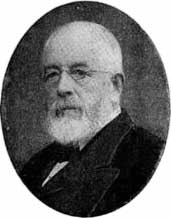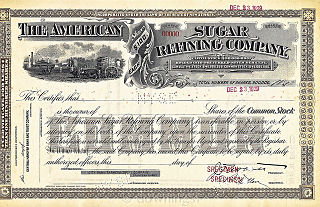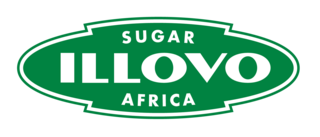Related Research Articles

Silvertown is a district in the London Borough of Newham, in east London, England. It lies on the north bank of the Thames and was historically part of the parishes of West Ham and East Ham, hundred of Becontree, and the historic county of Essex. Since 1965, Silvertown has been part of the London Borough of Newham, a local government district of Greater London. It forms part of the London E16 postcode district along with Canning Town and Custom House.

Sir Henry Tate, 1st Baronet, was an English sugar merchant and philanthropist, noted for establishing the Tate Gallery in London.

Ian Hedworth John Little Gilmour, Baron Gilmour of Craigmillar, was a Conservative Party politician in the United Kingdom. He was styled Sir Ian Gilmour, 3rd Baronet from 1977, having succeeded to his father's baronetcy, until he became a life peer in 1992. He was Secretary of State for Defence in 1974, in the government of Edward Heath. In the government of Margaret Thatcher, he was Lord Privy Seal from 1979 to 1981.

Tate & Lyle PLC is a British-headquartered, global supplier of food and beverage products to food and industrial markets. It was originally a sugar refining business, but from the 1970s, it began to diversify, eventually divesting its sugar business in 2010. It specialises in turning raw materials such as corn and tapioca into ingredients that add taste, texture, and nutrients to food and beverages. It is listed on the London Stock Exchange and is a constituent of the FTSE 250 Index.

A sugar refinery is a refinery which processes raw sugar from cane or sugar extracted from beets into white refined sugar.

Golden syrup or light treacle is a thick, amber-coloured form of inverted sugar syrup made by the process of refining sugar cane or sugar beet juice into sugar. It is used in a variety of baking recipes and desserts. It has an appearance and consistency similar to honey, and is often used as a substitute where honey is unavailable.

Redpath Sugar Ltd. is a Canadian sugar refining company that was established in 1854 and the first refining cane sugar in Montreal, Quebec. Headquartered in Toronto, Ontario, the company is a subsidiary of the multinational American Sugar Refining.

Colin Berkeley Moynihan, 4th Baron Moynihan, 4th Baronet, is a British Olympic silver medalist, politician, businessman and sports administrator. Lord Moynihan served as the Chairman of the British Olympic Association (BOA) from 2005 to 2012. A member of the Conservative Party, he was as a Member of Parliament (MP) representing the constituency of Lewisham East from 1983 to 1992, and was the Minister for Sport from 1987 to 1990. He became a member of the House of Lords in 1997.

The American Sugar Refining Company (ASR) was the most significant American business unit in the sugar refining industry in the early 1900s. It had interests in Puerto Rico and other Caribbean locations and operated one of the world's largest sugar refineries, the Domino Sugar Refinery in Brooklyn, New York.

Abram Lyle was a Scottish food manufacturer and politician, who is noted for founding the sugar refiners Abram Lyle & Sons in 1887, which merged with the company of his rival Henry Tate to become Tate & Lyle in 1921.
Nigel Vinson, Baron Vinson, LVO, is a British entrepreneur, inventor, philanthropist and Conservative former member of the House of Lords.

Illovo Sugar Africa (Pty) Ltd based in uMhlanga, KwaZulu-Natal, South Africa, is Africa's largest sugar producer. The group produces raw and refined sugar for local, regional African, European Union (EU), United States and world markets from sugar cane supplied by its own agricultural operations and independent growers who supply cane to Illovo's factories.

The Guyana Sugar Corporation, or GuySuCo, is a Guyanese sugar company owned by the government. It is the country's largest cultivator and producer of sugar, a historically important commodity in the country. They produce Demerara Sugar for export around the world.
Charles Ernest Leonard Lyle, 1st Baron Lyle of Westbourne was a British industrialist and Conservative Party politician.

American Sugar Refining, Inc. is a large privately held cane sugar refining company, with a production capacity of 6.5 million tons of sugar. The company produces a full line of consumer, industrial, food service, and specialty sweetener products. In 2013, it adopted the corporate brand name ASR Group. Its ownership structure is based on a partnership which includes the Florida Crystals Corporation, part of FLO-SUN, a sugar empire of the Fanjul brothers whose origins go back to Spanish-Cuban sugar plantations of the early 19th century.
Sir Oliver Lyle, OBE (1891–1961) was a British sugar technologist during the early 20th century.

John Joseph Eastick was a British chemist, is noted for being the first chemist at the sugar refinery Abram Lyle and Sons and patenting special methods for making brewers’ saccharum, inverted sugar syrup and golden syrup.
Charles Esau Eastick was a British chemist, noted for formulating golden syrup and patenting special methods for making brewers' saccharum and inverted sugar.
Sir Henry Saxon Tate, 5th Baronet, was an English businessman particularly associated with the family sugar business Tate & Lyle, with the Industrial Development Board for Northern Ireland, and the London Futures and Options Exchange.
Fowler Ltd. or Fowler Limited was a sugar refining company headquarted in Blackwall, London, England.
References
- 1 2 3 Who's Who (1975)
- 1 2 3 4 5 Hugill, J.A.C. (Ex-Main Body director), "John O. Lyle, an Appreciation", Tate & Lyle News, April 1985, p.3.
- ↑ Supplement to The London Gazette, 21 June, 1940, p.3767.
- ↑ Hugill (1978), p.247.
- ↑ Hugill (1978), p.267.
- ↑ Chalmin, Philippe (1990). The Making of a Sugar Giant: Tate & Lyle 1859-1989. Routledge. ISBN 9781315076379.
- ↑ "Tate & Lyle Celebrates 160 years: A timeline". YouTube .
- ↑ SUGAR - House of Commons Debate, 24 October 1973, vol 861, cc1276-390, Hansard.
- 1 2 McCormick, John (5 November 1974), "I sent nanny my sugar ...: Mrs Cube talking last night" Daily Express, p.1}}
- ↑ Clayton, Hugh "Sugar Shortfall Ahead", The Times, 7 November 1974.
- ↑ "Mr Cube's sugar shaker: Price rises and redundancies threat - John Lyle, 'None left by February' warning." Evening Standard, 6 November 1974, p.1.
- ↑ Hugill (1978), p.308.
- 1 2 Sanders, James (1997). A Struggle for Representation: The international media treatment of South Africa, 1972-1979 (PDF). London: School of Oriental and African Studies, University of London. Retrieved 10 April 2024.
- ↑ "An Announcement by Tate & Lyle Limited", Daily Express, 14 December 1977.
- 1 2 Lyle, John O. (25 January 1978), "Chairman's statement", Preliminary announcement of profits for year ended 30 September 1977.
- ↑ Cope, Nigel (19 April 2000). "Not such sweet success". Independent. Retrieved 10 April 2024.
- ↑ "Love Lane Lives - the boys & girls from the white stuff".[ unreliable source? ]
- ↑ "Margaret Thatcher Engagement Diary - Wed 17 October 1984".
Sources
- Hugill, Antony (1978). Sugar and All That: A History of Tate & Lyle. London: Gentry Books. ISBN 0856140481.